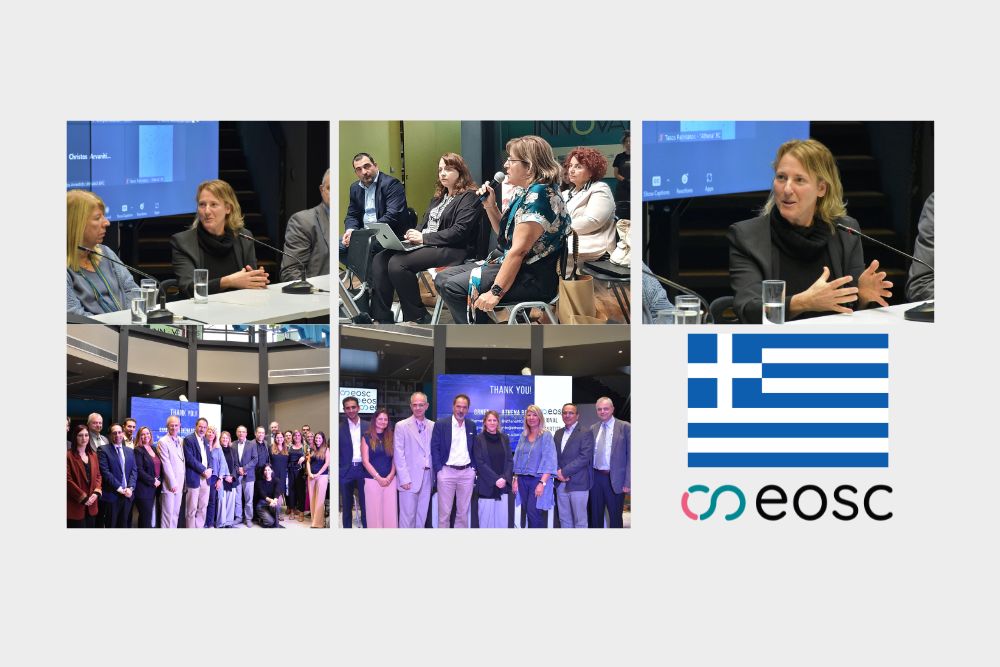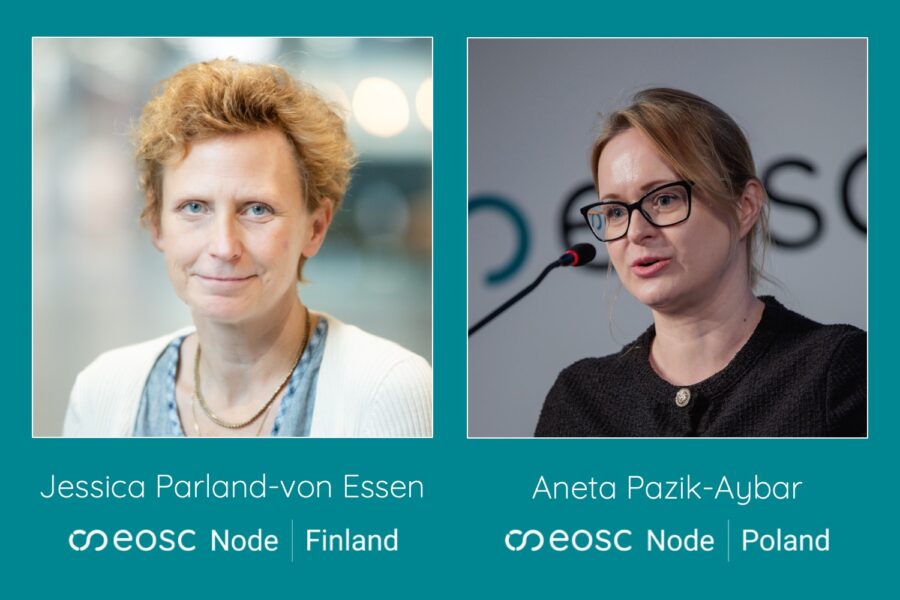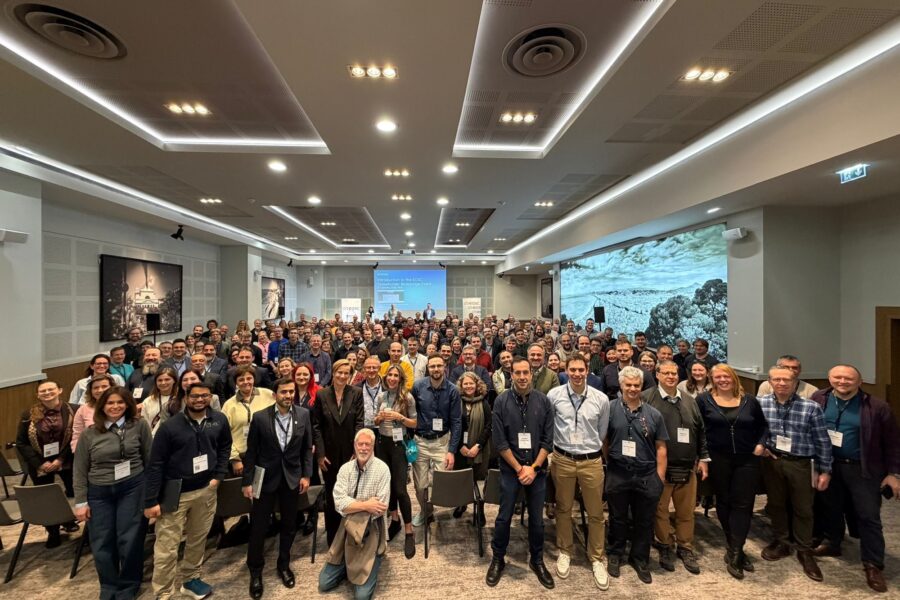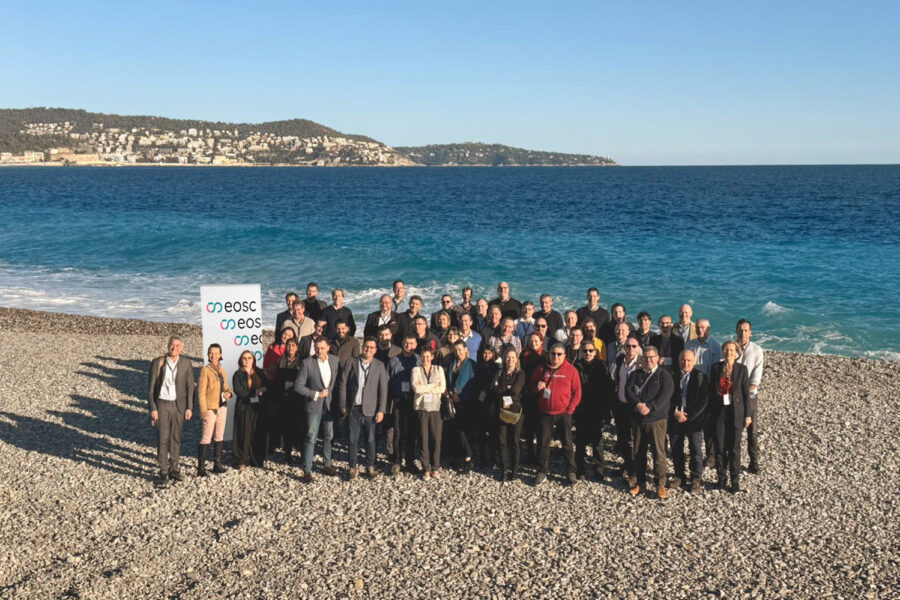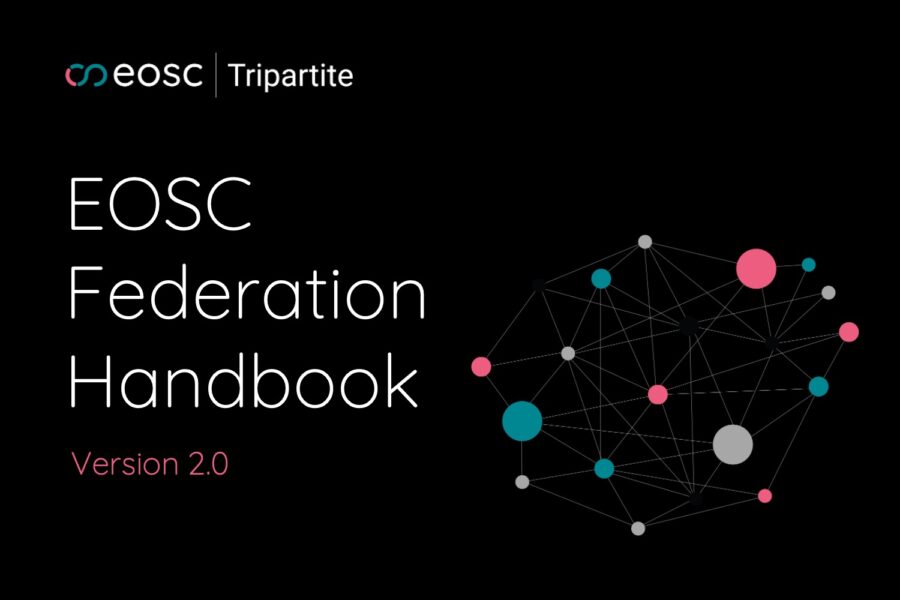The Greek National Tripartite event that took place on the 6th of October was a major gathering of the EOSC “ecosystem” in the country. Co-organised by the “Athena” Research Centre and the National Infrastructures for Research and Technology (GRNET S.A.), the event was by invitation only and organised as a hybrid meeting. This allowed a broad participation, also by stakeholders from other parts of Greece then Athens: 40 participants were physically present and 150 more joined online. The national Open Science community was in fact very well represented, in its various roles: research funding organisations and government officials, research performers, and research infrastructures for service provision, as well as technology advancement and innovation organisations.
The opening session was dedicated to two out of the three parties of the collaboration, namely the government and the EC. Christos Dimas, Deputy Minister for Research and Technology, and Antonis Stasis, General Director at the General Secretariat of Digital Governance and Simplification of Procedures of the Ministry of Digital Governance, addressed the audience and both highlighted the importance of EOSC for the Greek research and innovation communities, and confirmed their commitment in supporting the tripartite collaboration. Pantelis Tziveloglou highlighted the role of the EOSC tripartite collaboration in bringing together the key elements for the success of EOSC.
On the second session, Ilaria Nardello, Senior Policy Officer of the EOSC-Association, and Yannis Ioannidis, EOSC Steering Board representative for Greece, presented the EOSC-Association priorities and the EOSC implementation efforts in Greece. Yannis Ioannidis recalled the importance of “coordination among the Ministries and between them and the research communities to align on the priorities and the implementation steps for Open Science in Greece”. Ilaria Nardello shared with the audience the work being developed at EOSC-A on refreshing the EOSC vision and governance model, reinforcing the relationship between the organisations, researchers, infrastructures and the rest of the digital landscape.
In the same session Maria Christoula, Head of International Scientific and Technological Cooperation at GSRI provided data and information in relation to the National OS Strategy and EOSC participation, while Antonis Stasis gave an overview of the related priorities of the Digital Transformation Strategy of Greece 2021-2025 and the core elements of the strategy regarding Open Science. The session closed with the presentation of the Hellenic Open Science Initiative (HOSI) by the chair of the Organising Committee, Spyros Athanasiou.
A final session was reserved for the interactive discussion with and among the participants. Key points in this very vivid exchange were: what are the Greek OS actors’ expectations towards EOSC, what do federation and federated RIs mean under EOSC and how this can be achieved, what are the priorities for a secure and trustworthy data sharing, what are the digital skills needed for EOSC and how to upskill researchers and OS actors. A major part of the discussion was dedicated to the need for more coordinated efforts, in the country as well as at the European level, and how to achieve this. In this direction, the remarks by the HOSI members, the EOSC projects representatives and the RIs representatives are very promising towards further strengthening the open science and EOSC capacity in the country.
>> Tripartite Collaboration in Greece
>> Read more about the Tripartite Collaboration
